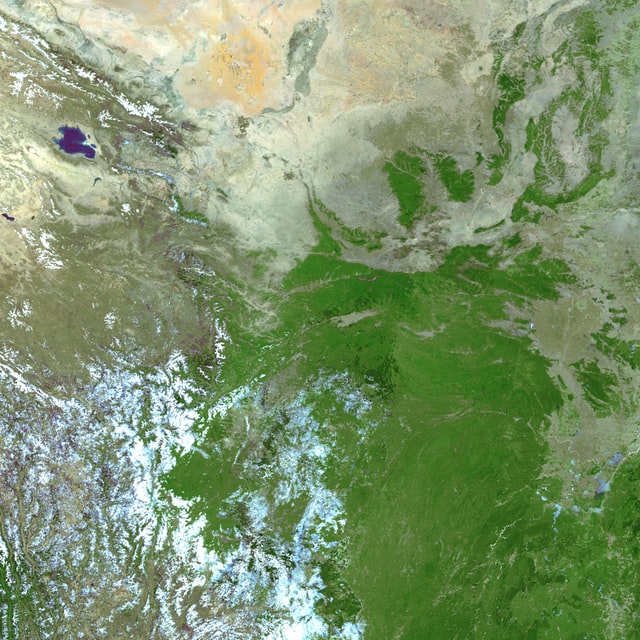Catalina Vallejo Piedrahíta, Research Leader for the Natural Resources & Climate Lawfare Unit
International days have been established by the United Nations with the aim of raising public awareness of issues of great interest, such as human rights, sustainable development, or health. They also seek to draw the attention of the media and governments to raise awareness of problems that require concrete political action.
We recently celebrated Earth Day 2020, which gave an opportunity to reflect on the interrelation between environmental management and health at this historic moment where a new respiratory disease has put us in lockdown across the globe. This is a pandemic that is intimately linked to our poor management of the environment, and we need to reflect on how we can prevent new global crises of this kind.
It is vital that in addition to recovering from the current crisis, we think about preventive transformations, as experts warn that if activities such as deforestation for extensive agriculture and livestock, wildlife trade, and the densely populated cities do not change, similar viruses and infections will arise.
Earth Day
The first Earth Day was celebrated in 1968 when the U.S. Public Health Service organized the Human Ecology Symposium for students to hear scientists talk about the effects of environmental harm on human health. More than 50 years later, the disease caused by the new coronavirus makes this connection evident.
In the 1970s there was already an environmental movement in many countries, stimulated by the rock and roll culture, protests against excessive state authority, the sex revolution, psychedelic experiences, and the call for mental and spiritual liberation. People at the time found new ways of understanding the relationships between nature and society.
They echoed ideas held by indigenous communities for centuries, according to which the planet was much more than an inexhaustible source of resources for the industry; it was also a supreme being, the great home, the ancestors´ refuge, a random miracle from which so many manifestations of life arouse. These thought changes lead to the creation of environmental government agencies and ministries: a “greening” of the state.
COVID-19 and the environment
Diseases like the current pandemic are known as zoonotic diseases. Scientists have found that the emergence of coronavirus comes from the animal world and that its transmission to humans is enabled by deforestation, land-use change, intensive agriculture and livestock production, and the growing wildlife trade, all of which increase the contact between wildlife and domestic animals and humans. The social and economic crisis that we are experiencing due to COVID-19 has everything to do with environmental management.
Infections that are transmitted from animals to humans, such as tuberculosis, rabies, or malaria, are not new. According to the United Nations Environment Program (UNEP), 60 percent of human infectious diseases are of animal origin. But while not new, the problem is increasing, 75 percent of so-called ’emerging’ diseases – such as Ebola, HIV, avian influenza, and Zika – are zoonotic.
Since 2016, UNEP had indicated that the emergence of zoonotic diseases often is associated with environmental changes as a result of human activities. The process that leads a virus to move from an animal species to humans is complex, but according to scientists, deforestation, agriculture or urbanization that change the balance between species are a bridge between viruses and humans. Rodents, primates, and bats are the main hosts of most animal-to-human-transmitted viruses. Apart from the current pandemic, other zoonoses leave hundreds of thousands of humans to die each year.
Pandemics and earth ethics
Scientists have stressed that this trend will continue, and the frequency of pandemics will increase because of increasing changes in land use, combined with increased travel and global trade. Beyond the direct response to the current pandemic, structural responses of a preventive nature are needed. This is a good time to reflect on our model of dense cities and high consumption, which colonizes lands, ills alternative cultures, and feeds on animals on an industrial scale.
The pandemic we are undergoing has revealed deep inequalities in access to public goods and services in many parts of the world. People living in cities with air pollution are more severely affected. In sum, we are witnessing the circular process in which our life models affect the environment and ecological harm affects our health, wellbeing, and economy.
Earth Day in the midst of a pandemic reminds us of the need to think about how to integrate our knowledge of the planet’s ecological boundaries into all our individual and political decisions and work towards a deeper greening of the states.
We can use this crisis to reconsider our ethics, reflect together on how we can relate to each other with more equity in difficult times, and how to integrate into our thinking that majestic all-encompassing other that is mother Earth.

